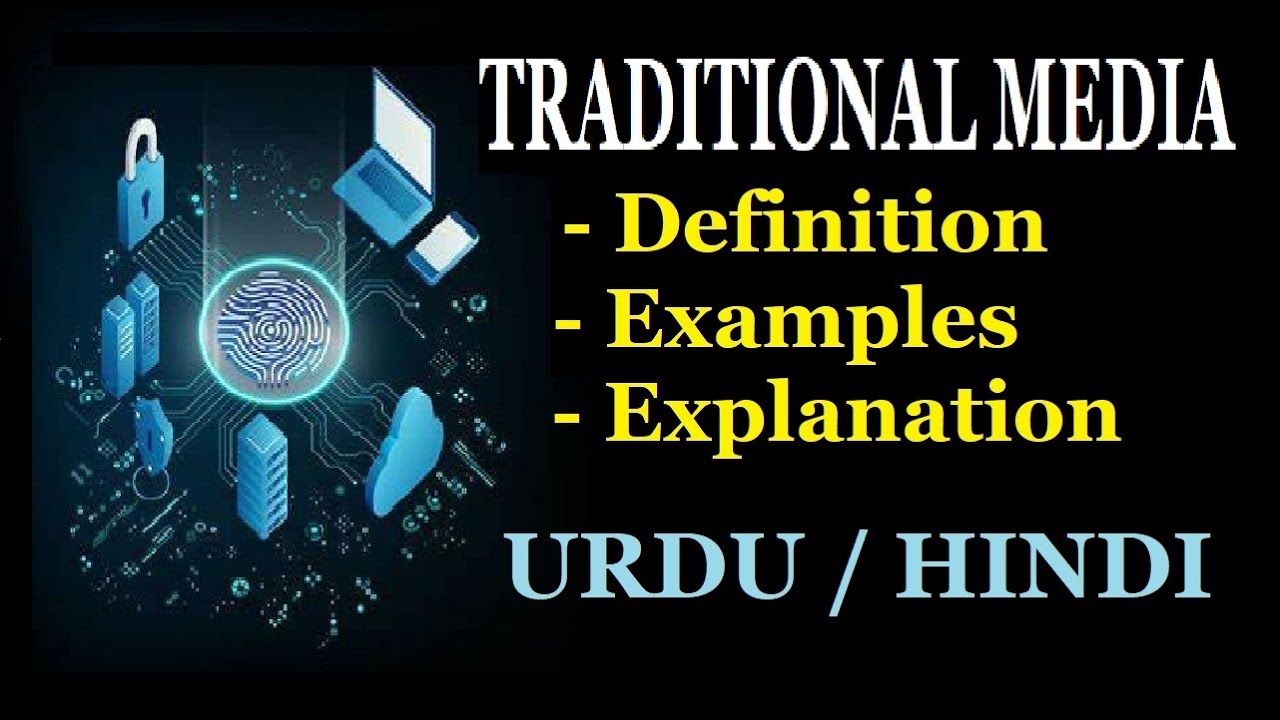The Role Of Traditional Media In The Era Of Digital News - Adapting To Change
The role of traditional media in the era of digital news is a subject of ongoing discussion and analysis as the landscape of news reporting and consumption continues to shift. With the rise of digital media platforms, many have questioned whether traditional media still has a place in today's world.
Mar 30, 202329.7K Shares848.6K Views

The role of traditional media in the era of digital newsis a subject of ongoing discussion and analysis as the landscape of news reporting and consumption continues to shift. With the rise of digital media platforms, many have questioned whether traditional media still has a place in today's world.
However, while the ways in which we consume news have evolved, traditional media still plays an essential role in informing the public and shaping the public discourse. This article will explore the role of traditional media in the era of digital news and how it can adapt to the changing needs and expectations of audiences while maintaining its core values and principles.
What Is The Role Of Traditional Media In The Era Of Digital News?
Traditional media has undergone a significant transformation in the digital era. The internet and the rise of digital technology have had a profound impact on the way people consume news and information, and traditional media outlets have had to adapt to stay relevant.
In the past, traditional media, such as newspapers, radio, and television, were the primary sources of news and information. However, the internet has enabled people to access a wide range of news sources and has disrupted the traditional media landscape.
To adapt to the digital era, traditional media outlets have had to invest in their digital capabilities. Many newspapers, for example, now have online editions and mobile apps to reach a broader audience.
Similarly, radio and television broadcasters now have websites and social media pages to engage with their audiences and provide additional content. Additionally, many traditional media outlets have developed new revenue streams, such as sponsored content and paywalls, to generate income in the digital age.
Despite the rise of digital news sources, traditional media still plays a vital role in shaping public opinion and holding power accountable. Traditional media outlets have a long-standing reputation for providing reliable and trustworthy journalism, which is essential in an age of misinformation and fake news.
Furthermore, traditional media outlets often have access to resources, such as experienced journalists and investigative teams, that digital news sources may lack. The evolution of traditional media in the digital era has been significant, with traditional media outlets having to adapt to stay relevant.
However, despite the rise of digital news sources, traditional media still plays a critical role in shaping public opinion and holding power accountable. The challenge for traditional media is to continue to innovate and invest in digital capabilities while maintaining their reputation for reliable and trustworthy journalism.
Advantages Of Traditional Media
Traditional media, which includes forms such as television, radio, and print newspapers, still offer several advantages in today's digital age. Firstly, traditional media often reaches a broader audience, including those who do not have access to or are not comfortable with digital media.
It also offers a sense of legitimacy and trust, as these sources are often well-established and have a history of accurate reporting. Additionally, traditional media can provide in-depth analysis and investigative reporting that may be lacking in the fast-paced world of digital media.
Traditional media remains an essential part of the media landscape, offering unique advantages that cannot be replaced by digital media alone.
The Role Of Traditional Media In Shaping Public Opinion
Traditional media, including newspapers, television, and radio, has long played a critical role in shaping public opinion. It has the power to inform, persuade, and influence the views and beliefs of the general public on a wide range of issues.
One of the primary ways traditional media shapes public opinion is through the selection and presentation of news stories. Media outlets choose which stories to cover, how to frame them, and how much time or space to devote to each story, which can significantly impact public perception.
Traditional media is also an important platform for political campaigns and advertising, as political candidates and interest groups use the media to promote their agendas and sway public opinion.
Another way traditional media shapes public opinion is by acting as a watchdog and holding those in power accountable. Investigative journalism and in-depth reporting by traditional media outlets have exposed corruption and wrongdoing in government and other institutions, resulting in changes in policies and public opinion.
Traditional media also provides a forum for public debate, allowing for different perspectives and ideas to be shared and discussed. This exchange of ideas can help shape public opinion by exposing people to different viewpoints and encouraging critical thinking.
traditional media plays a crucial role in shaping public opinion. Its power to inform, persuade, and influence the views and beliefs of the general public makes it a valuable resource for understanding the world around us.
However, it is important to recognize that media outlets are not neutral and that their selection and presentation of news stories can be influenced by a range of factors, including political and economic interests.

What is Traditional Media? | Mass Media | Urdu / Hindi
The Future Of Traditional Media In A Digital World
The future of traditional media in a digital world is a topic of much discussion and debate. With the rise of the internet and social media, many have predicted the demise of traditional media, particularly print newspapers.
While it is true that traditional media outlets have faced significant challenges in adapting to the digital landscape, they still have a crucial role to play in providing accurate and reliable information to the public. The role of traditional media in the era of digital news is crucial.
One way traditional media can remain relevant in a digital world is by embracing technology and finding new ways to deliver content to audiences. This includes offering online subscriptions and developing mobile apps that make it easier for users to access news and information on the go.
Some traditional media outlets have also ventured into the world of social media, using platforms such as Twitter and Facebook to engage with their audience and share content. Another way traditional media can stay relevant is by focusing on providing high-quality, in-depth reporting and analysis.
In a world where anyone can publish content online, traditional media outlets can distinguish themselves by offering rigorous journalism that is fact-checked and verified. This is particularly important in an era of "fake news" and misinformation, where the public is increasingly skeptical of the information they receive.
Traditional media can also continue to play an important role in shaping public opinion and promoting democracy. By providing a platform for diverse voices and perspectives, traditional media can help promote a free and open society. Additionally, traditional media can act as a watchdog and hold those in power accountable, providing a check on the government and other institutions.
People Also Ask
How Can Traditional Media Remain Relevant In A Digital World?
Traditional media can remain relevant in a digital world by embracing technology and finding new ways to deliver content to audiences, focusing on providing high-quality journalism.
Why Is Traditional Media Important In Shaping Public Opinion?
Traditional media is important in shaping public opinion as it has the power to inform, persuade, and influence the views and beliefs of the general public on a wide range of issues.
What Is The Importance Of Traditional Media In Promoting Democracy?
Traditional media is important in promoting democracy as it provides a platform for diverse voices and perspectives and acts as a watchdog to hold those in power accountable.
Conclusion
Talking about the role of traditional media in the era of digital news, while the digital age has brought about significant changes in the way news is consumed and distributed, traditional media outlets still have a vital role to play in informing and shaping public opinion.
By embracing technology, focusing on high-quality journalism, and remaining committed to their watchdog role, traditional media can continue to promote democracy and provide a reliable source of news and information in an era of "fake news" and misinformation.
As the media landscape continues to evolve, it will be essential for traditional media outlets to adapt to the changing environment while staying true to their core mission of providing reliable, accurate, and high-quality news to the public.
Latest Articles
Popular Articles
